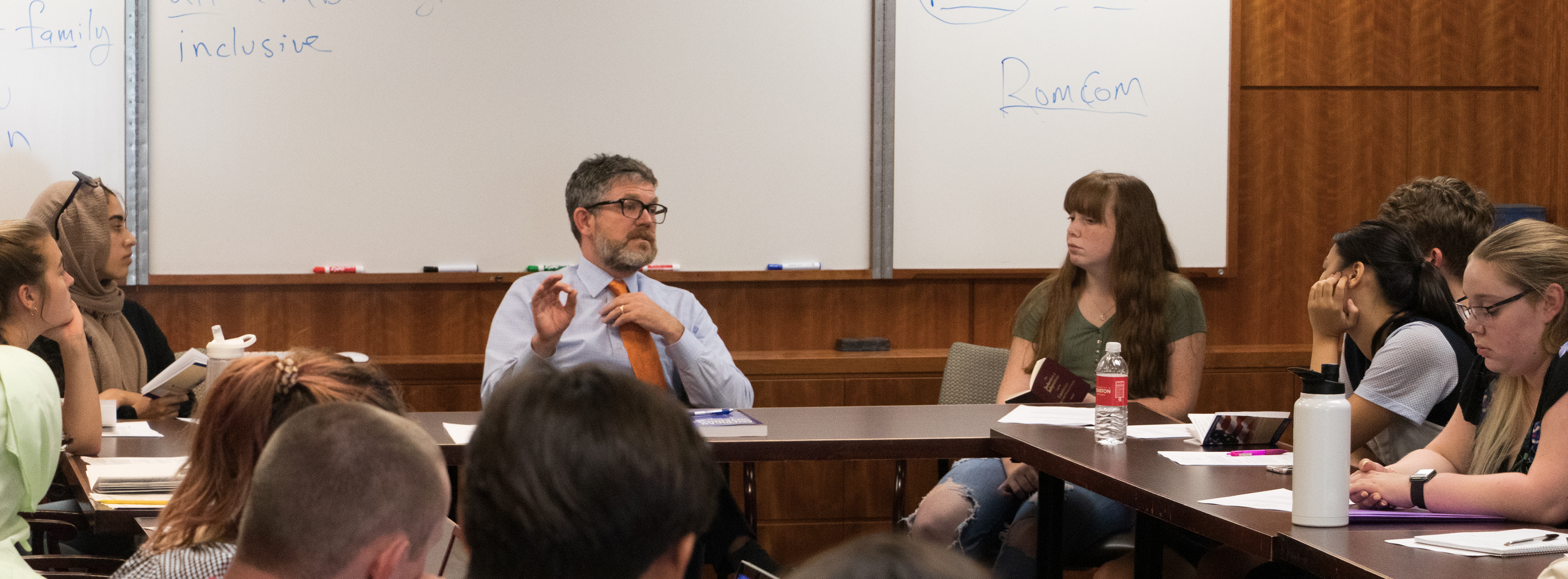Mission Statement

The Phronesis program in politics and ethics provides students with the knowledge and the tools to comprehend, analyze, and evaluate the moral and political world in which they live. Taught by faculty from a diverse set of disciplines and perspectives, Phronesis students study seminal works of moral philosophy, classical literature, and political theory, and discuss fundamental questions of ethics and politics.
Our faculty and curriculum encourage students to engage different viewpoints and perspectives on particular texts or issues. We aim to help students become articulate, independent, and responsible citizens and adults who will succeed in their vocations and as members of a free and open society. Our goal is not just to impart information, but to foster the development of what the Greeks called phronesis—practical intelligence, the necessary mental armature to live well and do well in a complex world.
Initiated by The Human Situation, the signature course of the Honors College, our curriculum gives students a firm grounding in the intellectual heritage of the West, its great works, fundamental questions, disputes and challenges. We want students to transcend the shallow and divisive debates of today by taking “the long view”—by understanding the philosophical, historical, and religious traditions in which those debates are grounded.
Students wrestle with demanding teachers, such as Homer and Virgil; Socrates, Plato, and Aristotle; Cicero and Polybius; Augustine and Aquinas; Machiavelli, Hobbes, Locke, and Rousseau. They grapple with hard questions: What is justice? What is the relation of freedom and authority? Can there be moral responsibility in a determined world? What is the significance of moral and cultural diversity?
Phronesis also allows students think through controversial contemporary issues, such as abortion, the death penalty, euthanasia. They undertake their study with the rich resources of thinkers and texts that articulate, even as they disagree, the fundamental alternatives and principles involved in these issues. We welcome controversy, but only of the well-informed, well-thought-out, and reflective kind.
The Program also invites outside scholars, public intellectuals, and members of the community to campus to speak about their scholarship and expertise, the texts students are reading, and the important policy issues of our time. In the past, we have sponsored a lecture series on the rise of modern liberty; talks on the works of Aristophanes, Plato, Machiavelli, Simone de Beauvoir, and others; discussions of modern relativism, naturalism, revenge and punishment.
These visiting speakers engage our campus community as well as our alumni and interested citizens of Houston, bringing them to campus and drawing them to the educational and civic experience the University of Houston can provide as a Tier One public research university.